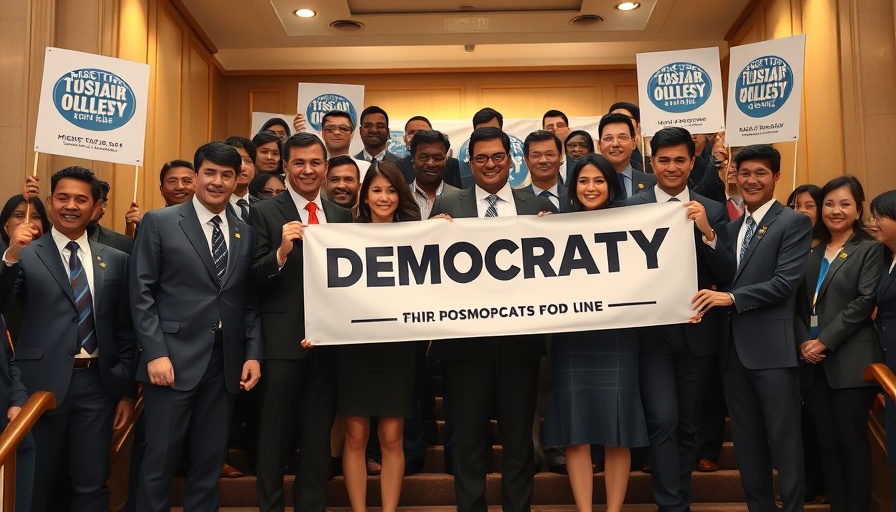
Understanding the Unfolding Redistricting Drama in California
In an unprecedented move, California Governor Gavin Newsom announced that the state will cover the upfront costs for counties associated with a special election aimed at redistricting. This decision comes as lawmakers rush to organize a special election scheduled for November in which voters will address new congressional maps that could significantly influence elections through 2030. This proactive measure has arisen in response to concerns over financial burdens on local counties, particularly in budgeting for unanticipated special elections.
The Financial Implications: What It Means for Local Governments
Elections officials, particularly from counties such as Orange and Los Angeles, voiced strong concerns about the unexpected duties tied to the special election. Orange County Registrar of Voters Bob Page emphasized that budgeting for such an event was nearly impossible within their fiscal constraints. As a result, the state has pledged to advance funds to ensure these counties are not left to shoulder the financial burden alone. For instance, L.A. County estimates that administering the special election will cost around $63.3 million, while Orange County anticipates a cost of approximately $15.6 million. This initiative is crucial—without state assistance, many counties might have struggled to conduct the necessary elections.
Political Context: A Battle of Partisan Interests
The upcoming special election is not merely about budgets—it’s a pivotal moment in California’s political landscape. With rising fears that Republican-controlled states might engage in aggressive partisan redistricting initiatives, California's Democratic leadership has responded strategically with their own maps aimed at protecting their interests. This creates a stark contrast between states where Republicans are making sweeping changes versus California’s defense of its electoral landscape.
Historical Context: Lessons from Past Elections
Recent history offers a poignant reminder of the costs of poorly planned elections. In recalling Gavin Newsom in 2021, taxpayers bore the brunt of a $200 million price tag, leading to accusations of fiscally irresponsible decisions. The Democrats' criticism of this endeavor underscores the continuing tug-of-war between maintaining robust democratic processes and managing state finances. The comparison has not gone unnoticed; Democrats have highlighted what they view as hypocrisy from Republicans who label the upcoming election as extravagantly expensive while ignoring their past actions.
Budgeting in the Face of Challenges: Diverse Perspectives
As California grapples with its financial realities, Republicans have warned that investing over $230 million into a special election may detract from essential services like healthcare and education. In contrast, Democrats argue that safeguarding the integrity of elections and representation is a fundamental priority that justifies these expenditures. This division points to a larger conversation about the sustainability of California's fiscal policies overall.
Future Predictions: Political Maps and Their Impact
With the special election looming, the outcome could set a precedent for future elections in California and beyond. Should voters approve the newly proposed maps, this could reshape congressional representation significantly. Political analysts predict that the results will reverberate across the nation, potentially influencing how other states approach their own redistricting efforts. Such developments may culminate in a national dialogue regarding the integrity of election processes, particularly as partisan interests continue to polarize the political landscape.
Taking Action: What You Can Do
As residents of California consider the implications of the upcoming special election, it’s vital to stay informed. Engaging in community discussions, attending local forums, and understanding the proposed congressional maps can empower voters. Participation in this democratic process is crucial—not just for individual counties, but for the collective future of California’s representation.
In summary, as Californians prepare for this significant election, the upcoming partisan redistricting debate is more than a momentary event; it represents a critical turning point in the ongoing struggle over electoral integrity and representation. Staying informed enables better decision-making during this pivotal time.
 Add Row
Add Row  Add
Add 



Write A Comment